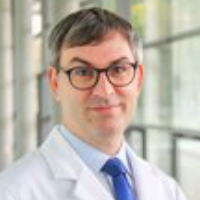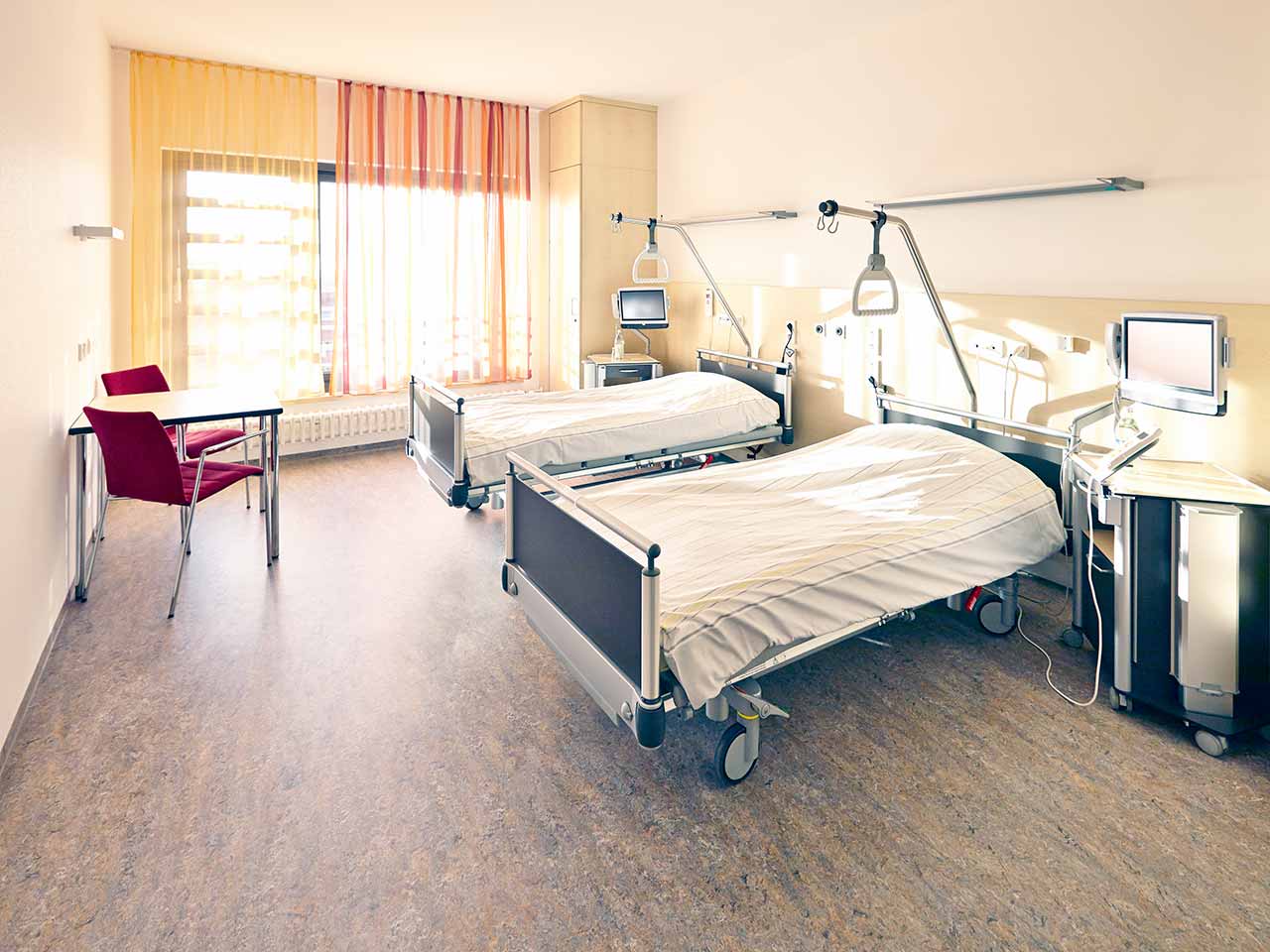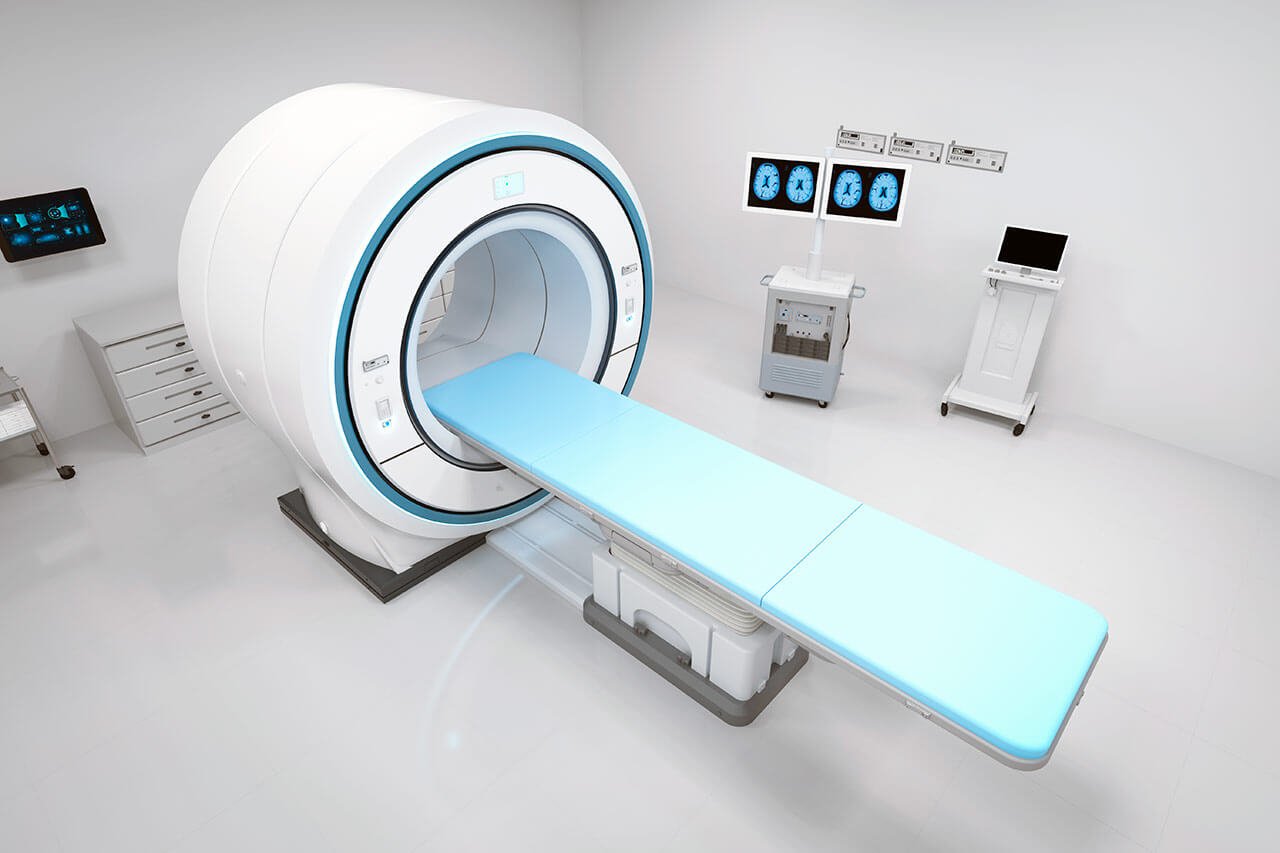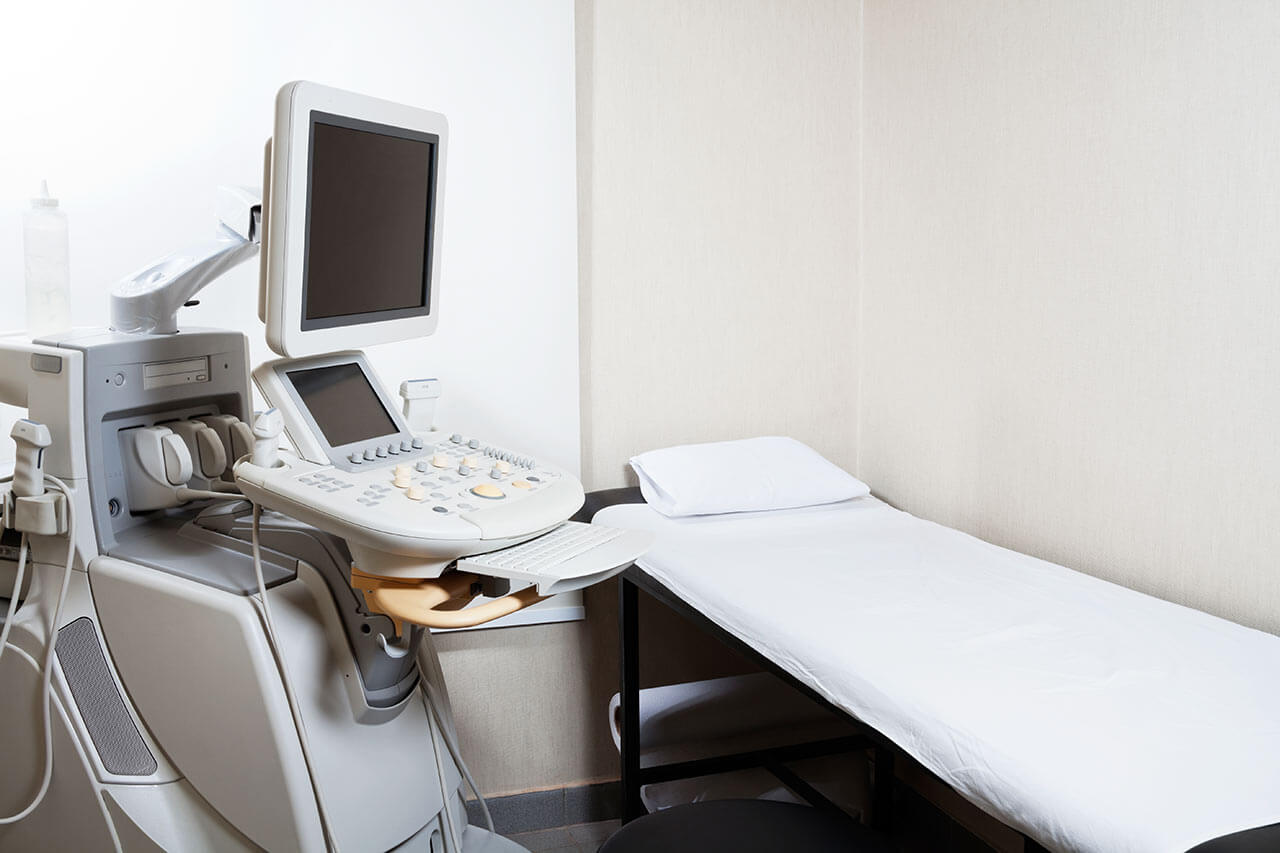
About the Department of Endocrinology at University Hospital Ulm
The Department of Endocrinology at the University Hospital Ulm offers comprehensive diagnostics and treatment of endocrine diseases: the pituitary gland, thyroid gland, parathyroid glands, pancreas, adrenal glands, and gonads. The department's doctors are also competent at providing medical care to patients with metabolic disorders. The specialists at the medical facility regularly hold consultations on nutrition, including for patients with diabetes mellitus. The department has excellent diagnostic options for assessing the function of the endocrine system. Laboratory tests to determine hormone levels, functional tests, and ultrasound examinations are carried out here. Various imaging tests, such as computed tomography, magnetic resonance imaging, scintigraphy, and positron emission tomography, are performed in collaboration with the Department of Radiology and the Department of Nuchal Medicine. The department's doctors mostly prescribe drug therapy for the treatment of endocrine diseases. With appropriate clinical indications, endocrinologists, in cooperation with highly specialized experts, conduct peptide receptor radionuclide therapy and radioiodine therapy. The doctors at the medical facility ensure the highest quality of medical care, which is based on an individual approach to each patient. The department is headed by Prof. Dr. med. Martin Heni.
The department admits patients with thyroid diseases such as hypothyroidism (insufficient production of thyroid hormones), hyperthyroidism (excessive production of thyroid hormones), goiter, thyroiditis, and thyroid cancer. The department's specialists prescribe a complex of diagnostic tests, including a clinical examination, thyroid palpation, laboratory tests to assess the hormone levels (TTG, free T4, and free T3), a complete blood count, and ultrasound scans to confirm the diagnosis. With appropriate indications, thyroid scintigraphy can also be carried out (in the Department of Nuclear Medicine). As for the treatment, the department's specialists most often prescribe drug therapy. The optimal dose of drugs and the duration of their intake are determined on an individual basis. During therapy, doctors prescribe iodine medications, thyreostatics, hormones, antibiotics, anti-inflammatory drugs, etc. Radioiodine therapy may also be carried out for hyperthyroidism, thyroid cancer, and toxic nodular goiter. This type of treatment is carried out in collaboration with specialists in nuclear medicine.
The department's team of endocrinologists has long experience in the treatment of type 1 and type 2 diabetes mellitus. In most cases, the specialists deal with the treatment of type 2 diabetes mellitus, which develops due to reduced tissue sensitivity to insulin and the subsequent functional impairment of pancreatic cells producing this hormone. Risk factors for the development of type 2 diabetes mellitus include genetic predisposition, excess weight, sedentary lifestyle, unbalanced diet, pancreatitis, pancreatic tumors, etc. The primary diagnostic method is a blood glucose test. For a comprehensive assessment of the patient's condition, doctors prescribe other laboratory tests, ECG, a chest X-ray, 24-hour blood pressure monitoring, and dopplerography of the blood vessels of the lower extremities. To compensate for type 2 diabetes mellitus, patients need comprehensive therapy that combines dietary adjustments, oral pills or injectable hypoglycemic drugs, and regular exercise. Weight reduction also plays a crucial role in the success of treatment for patients with excess weight.
The specialists at the medical facility demonstrate high success rates in the treatment of Cushing's syndrome. This disease is characterized by an elevated cortisol level, which is produced by the adrenal glands. Cushing's syndrome provokes the development of lipid metabolism disorders, osteoporosis, cardiovascular lesions, hyperglycemia, and mental disorders. If untreated, it may lead to bone fractures, heart failure, or respiratory failure. If Cushing's syndrome is suspected, the patient undergoes laboratory tests, including a blood glucose test, a biochemical blood test, a 24-hour urine cortisol analysis, and blood tests for ACTH, potassium, and sodium. CT and/or MRI scans of the adrenal glands and a brain MRI scan may also be performed. The key task of doctors during the treatment of Cushing's syndrome is to normalize the cortisol levels and alleviate the symptoms of the disease. A treatment regimen is based on taking medications that suppress hormone production in the adrenal cortex.
The department's key clinical focuses include:
- Diagnostics and treatment of thyroid diseases: hypothyroidism, hyperthyroidism, goiter, thyroiditis, and thyroid cancer
- Diagnostics and treatment of type 1 and type 2 diabetes mellitus
- Diagnostics and treatment of endocrine-related arterial hypertension
- Diagnostics and treatment of lipid metabolism disorders
- Diagnostics and treatment of metabolic syndrome
- Diagnostics and treatment of rare metabolic disorders
- Diagnostics and treatment of hirsutism (excessive hair growth) in women and polycystic ovary syndrome
- Diagnostics and treatment of gynecomastia in men
- Diagnostics and treatment of galactorrhea
- Diagnostics and treatment of diabetes insipidus
- Diagnostics and treatment of pituitary diseases
- Diagnostics and treatment of Cushing's syndrome
- Diagnostics and treatment of osteoporosis
- Diagnostics and treatment of calcium metabolism disorders
- Diagnostics and treatment of metabolic bone disorders
- Diagnostics and treatment of other endocrine diseases
Curriculum vitae
Higher Education and Postgraduate Training
- 2001 - 2003 Medical studies, Ernst Moritz Arndt University of Greifswald.
- 2003 - 2008 Medical studies, Eberhard Karl University of Tuebingen.
- 2004 - 2006 Fellowship from the German Research Foundation (DFG), study of cellular mechanisms of pathological processes related to the immune response.
- 2008 Admission to medical practice.
- 2015 Board certification in Internal Medicine, Endocrinology, and Diabetology.
- 2015 Habilitation.
- 2018 Extraordinary Professorship, Eberhard Karl University of Tuebingen.
- 2019 - 2022 Research Coordinator of the Institute of Diabetes Research and Metabolic Diseases (IDM) of the Helmholtz Center Munich at the Eberhard Karls University of Tuebingen.
Research Interests
- Clinical experimental and translational studies on the impact of hormones on the brain and regulation of peripheral metabolism, body mass, and distribution of adipose tissue in the organism.
- Regulation of insulin sensitivity and insulin secretion in humans.
- Pathogenesis, prevention, and treatment of prediabetes and type 2 diabetes mellitus.
- Biomarkers.
Prizes, Awards, and Honors
- 2022 Minkowski Prize from the European Association for the Study of Diabetes (EASD).
- 2019 Ferdinand Bertram Prize from the German Diabetes Association (DDG).
- 2018 European Young Investigator Award from the International Diabetes Federation (IDF).
- 2016 Menarini Award from the German Diabetes Association (DDG).
- 2015 Rising Star Award from the European Association for the Study of Diabetes (EASD).
- 2015 Silvia King Prize from the German Diabetes Association (DDG).
- 2012 Prize from the German Center for Diabetes Research (DZD).
Memberships in Professional Societies
- German Society for Clinical Chemistry and Laboratory Medicine (DGKL).
- German Diabetes Association (DDG).
- German Society of Internal Medicine (DGIM).
- German Society of Endocrinology (DGE).
- European Association for the Study of Diabetes (EASD).
- American Diabetes Association (ADA).
Photo of the doctor: (c) Universitätsklinikum Ulm






